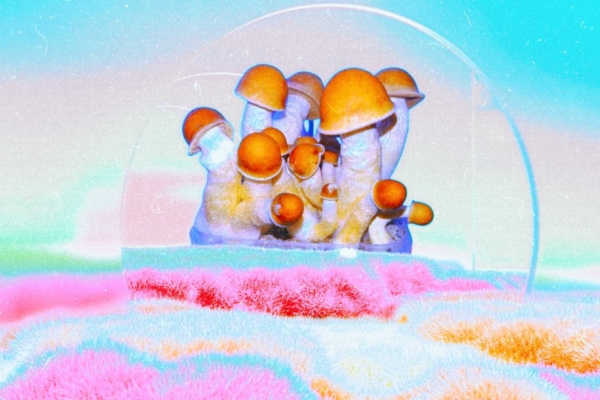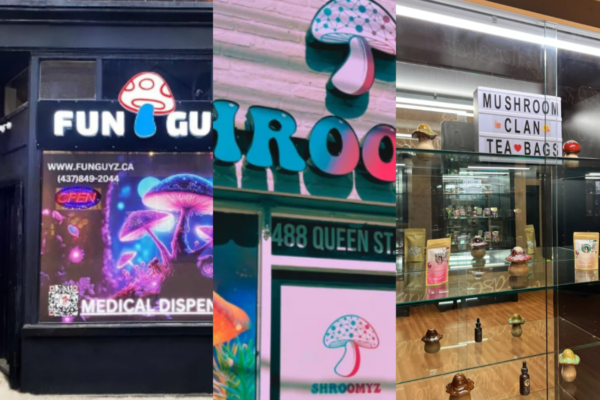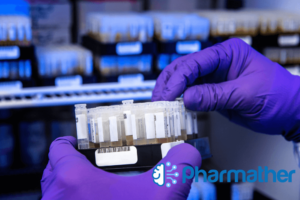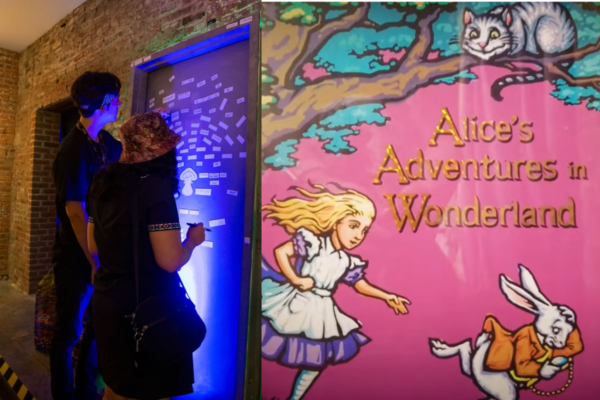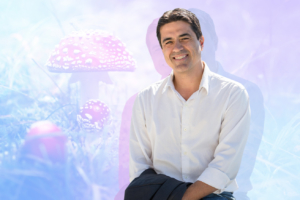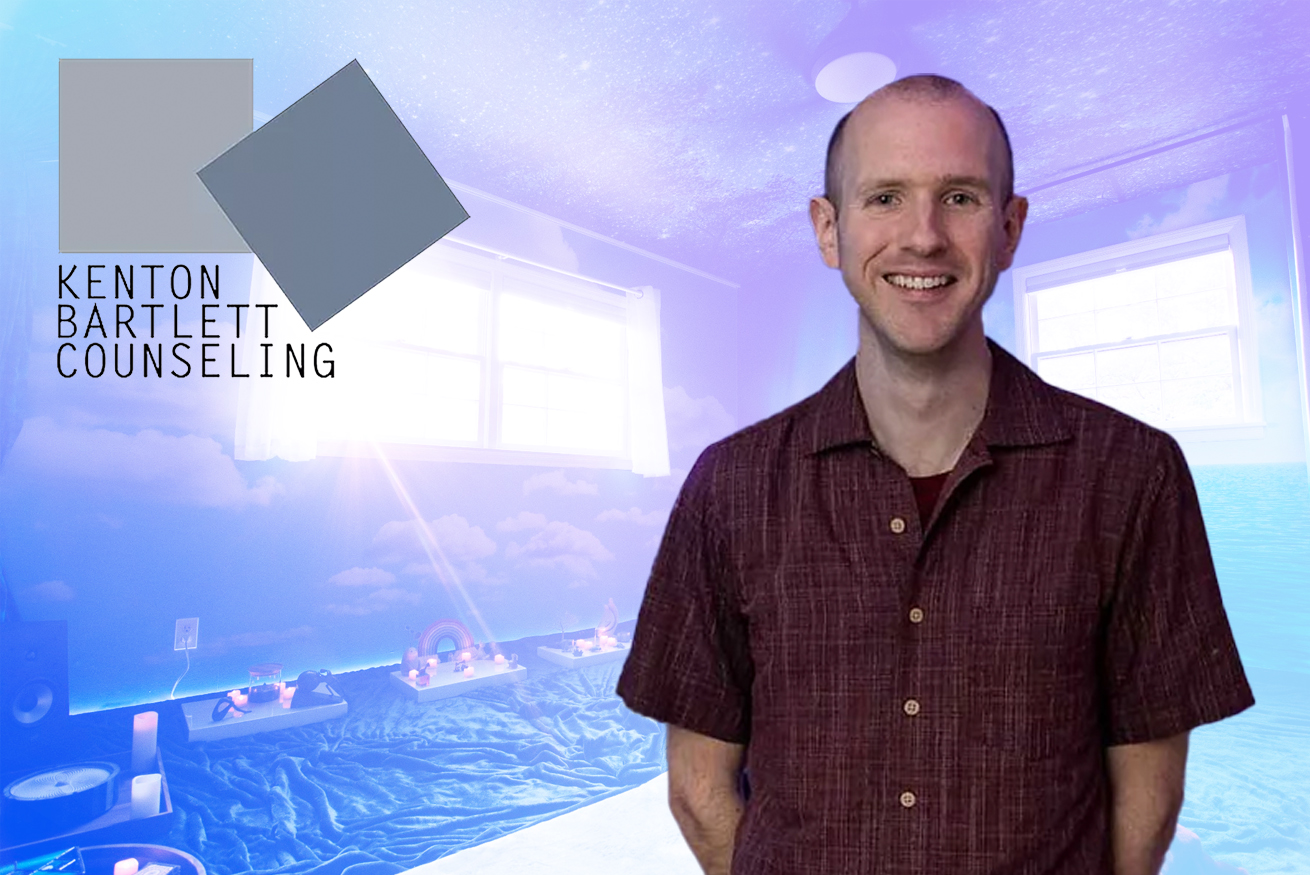
Trying to understand the state of psychedelic access in Alabama, I stumbled across a thoughtful article by Kenton Bartlett, of Kenton Bartlett Counseling. Launched last June in Birmingham, Alabama, KBC has overseen more than 50 ketamine-assisted therapy sessions.
After reading books about the power of psychedelics for healing, Bartlett writes about seeking ketamine-assisted therapy for himself in his home state. “A couple years ago I was interested in it and I was like, ‘All right, who’s doing this? How can you get good guidance and how can you not work with a drug dealer?’” Bartlett told me.
Bartlett was able to find many ketamine clinics in Alabama offering infusions. But there’s no real therapy involved. At a cost of $400 per one-hour infusion session, these clinics provide, in essence, a safe place to experience the drug overseen by a doctor and nurse. “Ketamine can be prescribed by any doctor and there’s ketamine clinics in town,” Bartlett said. “It’s very easy to get an experience with ketamine, but it’s very expensive at the clinics because there’s doctor and nurse oversight. That manpower makes it a lot less accessible.”
This lack of access to licensed therapists like himself who could incorporate ketamine into a larger therapeutic framework sent him on a mission to get trained to fill the gap. He headed to the Polaris Insight Center in California for eight day-long training modules. Next he flew to Oregon for an in-person retreat experience ketamine therapy himself. He was also able to monitor others while they underwent therapy and participate in group therapy, assisted by ketamine.
He left the eating disorder clinic where he’d been working to start Kenton Bartlett Counseling. As a licensed therapist, Bartlett’s offerings are far more holistic, incorporating intake, intention setting, talk therapy, integration, journaling, processing, and recovery in each four-hour session.
“I look at the medicine totally differently,” Bartlett said. “Rather than being like, this is a drug that’s gonna fix the chemicals in your brain, we’re looking at it like, here is a medicine that’s going to allow you to access your unconscious mind and your deeper emotions. You have to put a lot of effort into it. You’re journaling and coming up with your intentions. Then you have the experience. Afterwards, you do a lot of work around integrating. It’s a four-hour therapeutic session. The first hour is meditating and really calming the nervous system down and getting in a good space for this. Then it’s about two or two and a half hours for the ketamine experience. Then it’s whatever that’s bringing up therapeutically. It could be that we’re talking. It could be that they’re just going on a psychedelic journey. The last part, they might need to recover or process whatever just happened. Then we do integration sessions afterwards to help process whatever happened during the experience.”
Bartlett charges by the hour, starting at $160 with a sliding scale of $130 or $100 depending on the patient. “My rate is different. I’m charging for therapy time. My rate is comparable for a specialized therapist in Birmingham. It ends up costing a lot if you’re gonna do all the preparation sessions and then several ketamine sessions. It starts to add up because there’s a lot of therapy time going on.”
He told me he’s seen patients benefit tremendously from ketamine-assisted therapy.
“I’ve seen people have less self harm, less eating disorder behaviors, less addictive behaviors, more engagement with others,” Bartlett said. “Sometimes even less of a need to be on psychiatric medications. Less traumatic responses to things. Stuff like less nightmares has been one, less social anxiety, less depression.” Some people experience these benefits in just one session.
Ketamine-assisted therapy “can really help to address people’s trauma or have a lot of deep emotional insights about things, or even have experiences that are either kind of spiritual or mystical and help open people up in a way,” Bartlett told me.
Not everyone has a profound shift. “Sometimes people don’t really have a big psychedelic experience. That can feel a little bit disappointing. Sometimes it feels like not much is even happening or maybe afterwards, it just feels like that was kind of a dud or something.”
On the negative side, some patients experience some nausea.
He also told me he’s consulted with 120-plus patients around navigating psychedelic and alternative therapies. He says there aren’t a lot of good options to actually obtain those substances right now. “People would have to find that stuff through illicit channels.”
Bartlett is taking new patients, but there’s currently a wait list. He triages patients based on their needs and whether he thinks they’re a good fit for therapy. “I’m doing my best to work with everybody. I’ve changed my practice in order to be able to accommodate more people. I don’t even do talk therapy anymore. I exclusively focus on the psychedelic stuff in order to be able to help more people experience it.”
“I just hope people continue to get educated on the therapeutic benefits of this stuff so that there can be more acceptance around it so that more people can get the help they need with these different tools. And so that we don’t have to worry about getting arrested and so that there’s less stigma and less fear associated with it.”
I asked Bartlett if he supports the full decriminalization of all psychedelic substances. “Yeah, I think that’s a great move,” he said.
